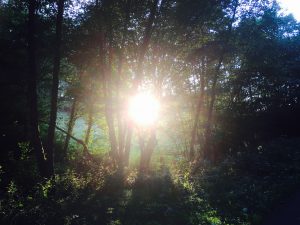Dear all,
A great part of being a holistic health coach is helping people find out how the past is impacting their present, unearthing blockages and assisting in ways of letting them go. Much of the pain and difficulties in life can be traced back to our family of origin, which had a great impact on shaping the often limiting beliefs that are holding us back in our adult life (« I am not good at…I don’t deserve…I will never find a loving partner…etc. »).
Families differ from all other social systems in that they involve permanent and irrevocable membership. This means we share a long common history with our family members. Like no other system therefore does our family of origin shape and mark us, at least to begin with.
In her book Peoplemaking, Virginia Satir asks three guiding questions on the quality of (your) family life:
Did it feel good to live in your family back then?
Did you feel you were living with friends, people you liked and trusted and who liked and trusted you?
Was it fun and exciting to be a member of your family?
According to her, in order for these questions to be answered affirmatively, four basic conditions need to be met. To her “in vital and untroubled families”:
self- worth of all family members is high;
communication is direct, clear, specific and honest;
rules are flexible, human, appropriate, and subject to change and
the linking to society is open and hopeful.
Unfortunately, few are the blessed who come from families which meet all these conditions. Probably most families struggle with at least one of the points and the list is surely far from being complete.
A great degree of the anguish, insecurities, sense of overwhelm and inadequacy we can feel as adults in our day-to-day life can therefore be traced back to this initial circle we were an active member of, without disregarding the trials life later places on us. And here it would be easy to simply name (and blame) the wrongdoers- the father, the mother, the sibling etc. and stop there, justifying one’s own inadequacy. “I am like this, because…”. But how would that help you?
And what if our quest for healing was one of the greatest journeys we could embark on in a lifetime? What if precisely this journey could be the pinnacle of purpose and meaning in your life?
What if exactly this pain inhabited a spiritual promise, a compass and a guide to lead you to the life and types of relationships you want?
Then these wounds and disappointments become the driving force to seek better answers (your own) and different life, one that reflects autonomy in your own essential nature, far beyond the energies you grew up in.
You can heal.
That is the promise.
I know for sure that my healing path has taken me on mysterious journeys, ranging from time spent in a macrobiotic eco-village in the forest of Alaska, to watching the sunrise in a circle of druids in Stonehenge. But the greatest work I did was within, with people I could have never imagined, who conveyed insights and understanding that gave meaning and purpose to my life. And the journey of course is ongoing.
So perhaps these wounds, deep as they may be, harbour hidden gifts for us to find.
Perhaps, behind the rage and anger, lies a pronounced sense of justice, which conveys courage and strength.
Behind the sadness lies compassion for the suffering of oneself and others.
Emptiness then is also a friend, a space to be filled.
In healing circles, there is this sentence that I used to feel resistance to: “It is never too late to have had a good childhood.”
The way I now understand it is that the suffering and loss you might have experienced as a child can in fact be transformed into a well of resources in your present life. (It does of course not mean you should idealise the wrong that was done to you).
I guess Buddhists sum it up to: “No mud, no lotus”.
You know you are healing when not only despite, but because of the past, you are building the life you want.
With love, Irene

